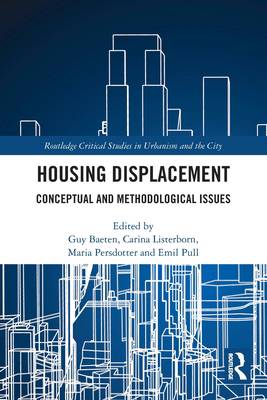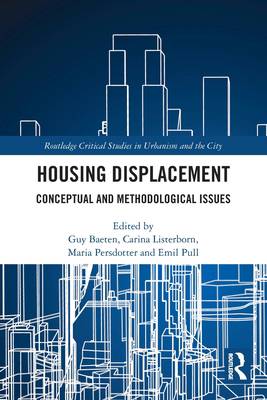
- Retrait gratuit dans votre magasin Club
- 7.000.000 titres dans notre catalogue
- Payer en toute sécurité
- Toujours un magasin près de chez vous
- Retrait gratuit dans votre magasin Club
- 7.000.000 titres dans notre catalogue
- Payer en toute sécurité
- Toujours un magasin près de chez vous
Housing Displacement
Conceptual and Methodological Issues
Description
This book examines reasons, processes and consequences of housing displacement in different geographical contexts. It explores displacement as a prime act of housing injustice - a central issue in urban injustices.
With international case studies from the US, the UK, Australia, Canada, India, Spain, Denmark, Sweden, and Hungary, this book explores how housing displacement processes are more diverse and mutate into more new forms than have been acknowledged in the literature. It emphasizes a need to look beyond the existing rich gentrification literature to give primacy to researching processes of displacement to understand the socio-spatial change in the city. Although it is empirically and methodologically demanding for several reasons, studying displacement highlights gentrification's unjust nature as well as the unjust housing policies in cities and neighborhoods that are simply not undergoing gentrification. The book also demonstrates how expulsion, though under-researched, has become a vital component of contemporary advanced capitalism, and how a focus on gentrification has hindered a potential focus on its flipside of 'displacement', as well as the study of the occurrence of poor cleansing from a long-term historical perspective.
This book offers interdisciplinary perspectives on housing displacement to academics and researchers in the fields of urban studies, housing, citizenship and migration studies interested in housing policies and governance practices at the urban scale.
Spécifications
Parties prenantes
- Editeur:
Contenu
- Nombre de pages :
- 226
- Langue:
- Anglais
- Collection :
Caractéristiques
- EAN:
- 9780367564537
- Date de parution :
- 29-04-22
- Format:
- Livre broché
- Format numérique:
- Trade paperback (VS)
- Dimensions :
- 156 mm x 234 mm
- Poids :
- 322 g






